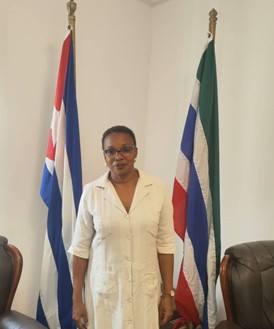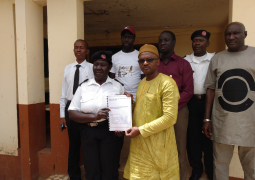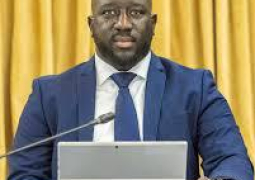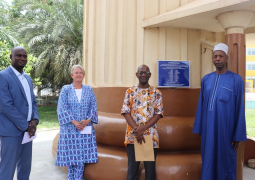
She said for over 60 years, Cuba has been a victim of unjust policy in violation of international law and constitutes the main obstacles to the economic and social development of Cuba.
She added that no other nation faces such a prolonged, anachronistic, systemic and complex framework of laws and policies of aggression and coercion.
This, she said includes the unprecedented intensification of the blockade in recent years and the development of systemic persecution actions aimed at cutting off the Cuban economy’s main sources of income.
She added that the blockade has caused material damages to Cuba estimated at around $7.5561 billion dollars, $2.499 billion more than the enormous damage caused in the 2023-2024 period, mainly due to the increase in losses from lost revenue from exports of goods and services.
“No sector of social and economic life escapes the effects of the blockade. Two months of the blockade are equivalent to the cost of the fuel needed to meet the country’s normal electricity demand ($1.6 billion dollars) and that five days of blockade are equivalent to the financing needed to repair one of the thermoelectric plants,” she said.
This blockade she added started February 1962 when President Kennedy signed total commercial blockade against Cuba in response to the social and economic measures that the new revolution adopted like nationalisation of properties and land reform.
She complained that the 63 years blockade has become a difficult framework of laws that restrict the international economic, commercial and financial relations of Cuba.
She continued that the extraterritorial laws affect non-American companies or subsidiaries in third countries that cannot import products with Cuban raw materials or Cuban components; prohibit the use of American dollars for transaction with Cuba.
She said “the objective is to suffocate, isolate and sever all ties between Cuba and the world, preventing access to fuel, technology, raw materials, food and medicines which affects key sectors such as health, agriculture and transportation.”
She said that in January, President Trump announced its decision to reestablish the harsh economic warfare measures against Cuba, which she declared an unconventional war that includes the economic sanctions as well as political campaigns.
She said this includes the continuation of full prosecution, implementation of the Helms Burton Act that allows lawsuits in US courts.
Speaking on Cuban medical mission around the globe, she said that Cuba has more than twenty-four thousand medical professionals in 56 countries, saving lives. These she said include over 100 professionals deployed in various regions of The Gambia.
She assured that Cuba will continue developing international cooperation and will respect its compromise, noting that Cuba is grateful to countries including The Gambia that decided to continue their relations of cooperation.





